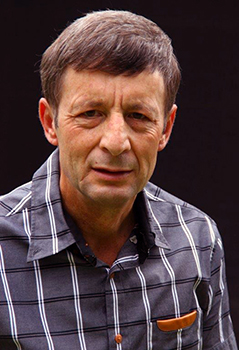Latest News Archive
Please select Category, Year, and then Month to display items
09 December 2020
|
Story UFS entral academic advising team
|
Photo Pixabay

It wasn’t easy, but we all got to this point because we stayed calm and made the effort to learn on even when it was difficult.
The University of the Free State (UFS) has remained committed to supporting you in every way possible, and as you prepare for the final assessments, remember to access the support tools you will need in order to successfully complete the 2020 academic year: https://www.ufs.ac.za/toolsforsuccess
Main exams are running from 30 November to 19 December 2020
All of the best, and break a pen in your upcoming final assessments. For those of you who will be graduating, we cannot wait to see you in that graduation attire; and those who still have some way to go, we cannot wait to serve you again in 2021 as we continue the pursuit of academic success!
Below are five main study tips that you can use for final assessment success:
1. Set a realistic study schedule
You might think that studying for eight hours straight for four days before the exam, will help you get through the work in time. See final edition of the #UFSLearnOn for more information.
2. Structure and organise your work
If your notes are organised, it is also easier for your brain to recall information, even when you become nervous during exams.
3. Practise with an old exam/semester test paper
Practice makes perfect, and although the final assessments might look different in how they are administered, it will still help to practise using old tests and exams.
4. Adapt your strategies to the content
What works for one module or even one learning outcome, might not be effective for another. You need to continually adapt your note-taking and study approaches. See #UFSLearnOn final edition for different study methods.
5. Healthy body, healthy mind
Your brain needs optimal care to perform at its best, and getting physically active (even if it is by jumping in one spot if space is limited) forces your body to release neurotransmitters responsible for positive emotions, which assist in retaining information in your memory …
Download the final edition of #UFSLearnOn that points you towards the resources you’ll need to ace your final assessments and end 2020 off on a high note!
Prof Luyt says young researchers should not allow circumstances to determine their future
2016-02-01

Prof Riaan Luyt, an NRF B-rated researcher
Photo: Supplied |
Young researchers, who spend their life at a disadvantaged and rural campus like the University of the Free State’s Qwaqwa Campus, should not be deterred from achieving their dreams.
This is the view of Prof Riaan Luyt, former Assistant Dean in the Faculty of Natural and Agricultural Sciences, who achieved his B-rating by the National Research Foundation (NRF) late in 2015. This was by far the highest-ever rating on the Qwaqwa Campus.
“When I moved to the Qwaqwa Campus many years ago, having had the opportunity to do a post-doctoral fellowship in Polymer Science at the Leeds University in the United Kingdom, I was determined to get the Department of Chemistry off the ground, and to embark on serious research,” said Prof Luyt, who is now the Affiliated Professor in the Department of Chemistry and Research Associate Professor at the Centre for Advanced Materials, based at Qatar University.
“It was through sheer determination that I managed to obtain enough funds to equip a decent research laboratory. There were many obstacles over the years, but I managed to attract more and more postgraduate students and published more,” he said.
At first, Prof Luyt was not successful with his NRF-rating applications.
“My first couple of attempts to get rated produced no success. I was then awarded a C3-rating, which was later followed by C2 and then C1,” he added. “Getting a B-rating is the highlight of my research career. It shows that it can be done. Young researchers should not allow their past or present circumstances, or their work environment to stand on their way,” said Prof Luyt, who has supervised 38 master’s and doctoral students as well as 11 postdoctoral fellows. He has also published 185 papers in international and accredited journals.
Although abroad, Prof Luyt will continue to supervise eight postgraduate students at the Qwaqwa Campus.